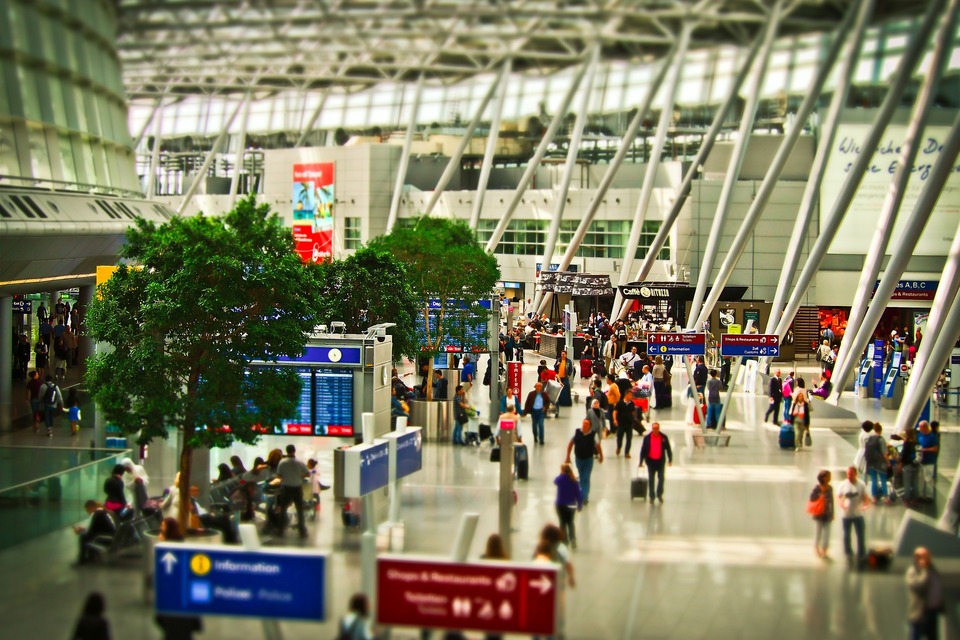
Alcohol at Airports: Laws, Risks, and What Passengers Should Know
It has been reported in the press that over 500 people have been arrested for being drunk on a plane at British airports in the past three years. The issue isn’t going away and both the government and airlines are under pressure to act.
For many, a holiday starts with that first airport drink. But what seems like harmless fun can quickly escalate into a legal and safety problem.
Why is alcohol at airports a growing concern?
Unlike bars on the high street, airside airport bars are not subject to standard licensing laws. That means drinks can be sold at almost any hour of the day, with fewer restrictions on how alcohol is served.
Airlines, meanwhile, are reporting more incidents of passengers who are intoxicated before they even step on board. Cabin crew say that dealing with drunk passengers is one of the biggest safety and security challenges they face mid-flight.
What are the current laws?
-
On the ground: Regular licensing laws apply before airport security, but airside bars and restaurants are exempt.
-
On board: It is a criminal offence to be drunk on an aircraft. This does not require disruptive behaviour, simply being intoxicated is enough.
The government consulted on tightening airport licensing laws back in 2018, but so far no legislation has been introduced.
Industry action and campaigns
Because regulation has been slow, airlines and airports have introduced voluntary measures.
-
Voluntary Code of Practice: UK airlines agreed not to sell alcohol to intoxicated passengers and to take a zero-tolerance stance on disruptive behaviour.
-
“One Too Many” campaign: Now running in over 20 airports, this campaign highlights the risks of drunken behaviour, including arrest, fines, and airline bans.
These steps have helped, but without legal enforcement they rely on cooperation.
Real consequences of airport drunkenness
The risks are more than just embarrassment:
-
Denied boarding: Airlines can refuse intoxicated passengers, often with no refund.
-
Fines: Disruptive behaviour mid-flight can lead to heavy financial penalties, especially if a diversion is required (which can cost airlines £10,000+).
-
Prison: Courts have repeatedly ruled that being drunk on an aircraft warrants immediate custody. Offenders face up to two years in prison, even with no prior convictions.
-
Lifetime bans: Some airlines impose permanent bans for serious incidents.
Case examples
-
In 2022, a passenger was fined £5,000 and jailed for 12 months after a mid-air fight diverted a flight to Portugal.
-
Another case involved a group of stag party passengers who were denied boarding before takeoff, losing not only their flights but their entire holiday.
These incidents show that what begins as “holiday fun” can quickly turn into serious consequences.
Does airline or jurisdiction matter?
Yes. The UK has jurisdiction over any offence on aircraft in UK airspace or on the ground. International conventions also allow local authorities to prosecute offences in foreign jurisdictions.
This can get messy. Being arrested abroad may mean dealing with a foreign justice system, additional legal costs, and long delays returning home.
Final thoughts
Grabbing a drink at the airport is a tradition for many travellers. But passengers need to know where the line is drawn. The combination of limited regulation airside, voluntary industry codes, and increasing passenger arrests makes it clear: the safest option is moderation.
The law is strict, and so are the consequences. Missing a flight is one thing, but a criminal record or prison sentence is quite another.
How we can assist
If you need specialist advice in relation to any criminal investigation or prosecution, we welcome you to get in touch with our dedicated team. Call on the local numbers at the top of this screen or send your enquiries through to our online contact form.






